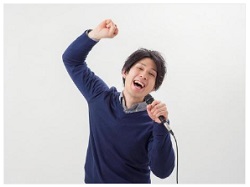遠慮 or enryo is translated as reserve,or constraint.Though it is difficult to translate,vital in Japanese society.
If a person ignores enryo, or acts without it,he or she could be considered as arrogant or vulgar.
Enryo is often illogical, but still needed
People may keep distance from someone who does not have enryo.
One example of enryo situation: When you unwittingly stay at friend’s home util mealtime and your friend invites you to a meal.
Out of enryo, you decline the offer. Your friend may reply “Please, enryo is unnecessary!” or “You don’t need any enryo with me.”
In this situation,if you accept the offer right away without any enryo, your friend may think “Really? I don’t believe it.”
Non-Japanese cannot understand this, and would say “You DID offer the meal, didn’t you?” Even Japanese know this is totally illogical, but this is what enryo is, and it still exists as a Japanese social concept.
Is enryo still a must in Japan?
Some may say even Japanese people do not enryo these days, I partly agree. If you and your Japanese friend are very close, you do not need enryo. But if not, enryo is definitely needed.
If one speaks or takes another person’s possessions without reserve, he may be blamed for not having enryo.
In Japan, a people having a nerve is most avoided. If you do not want to be considered as such a man, you need to show some enryo.
However, on the other hand, there is a fact that with too much enryo, one can never become close to others.
Showing too much enryo could be seen as being standoffish.
So in Japanese interpersonal relationships, a considerable sense of balance is required.








